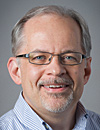#2: Fraud Magazine Dons New Look and Expands Focus
/ GUEST BLOGGER
GUEST BLOGGER
Dick Carozza
Editor in chief, Fraud Magazine
Since we began Fraud Magazine’s predecessor, The White Paper, in 1988, we’ve worked to give down-in-the-trenches information fraud fighters can apply to their jobs and career development. In 1996, we changed to a four-color magazine format and then later broadened our audience beyond the ACFE with the debut of Fraud Magazine in 2004.
In 2010, we introduced the new Fraud-Magazine.com, which gives readers everything in the print version plus exclusive material found only on the website.
According to a recent reader survey, the ACFE membership is becoming younger, and more globally diverse and technologically savvy. And our flagship publication, Fraud Magazine, is changing along with you.
 #2: Fraud Magazine dons new look and expands focus
#2: Fraud Magazine dons new look and expands focus
Beginning with the March/April issue, Fraud Magazine will take on a cleaner, more attractive look designed to help you, the practitioner, learn more. As we work through 2012 and beyond, you’ll see more concise articles and columns from new subject-matter experts. And we’ll emphasize cases, practical pointers and transferable lessons learned in the investigative process.
We’ll still highlight newsmakers, but we’ll also concentrate on nuts-and-bolts fraud examination topics. The magazine will include more articles on career development, investigation techniques, law, law enforcement, criminology and digital forensic methods. And we’ll also focus on risk management, money laundering and recovery of assets.
Our Fraud Magazine survey also found that 90 percent of readers agree that the magazine contains original information that can’t be found anywhere else. That continues to be our goal for this major member benefit as we move into 2012. Thanks so much for reading Fraud Magazine through the years. The publication has helped spread our message around the globe as we’ve solidified the CFE as the preeminent anti-fraud credential. Now we build on this history as we endeavor to give you even more targeted information that you can use today.
You can help shape the magazine by contributing your articles and columns. Share your expertise with the anti-fraud community, and you’ll not only receive deserved recognition, but you’ll help your colleagues crack their cases and accelerate the fight against fraud. Our editors will help organize your thoughts and polish your copy. Go here to get started.




